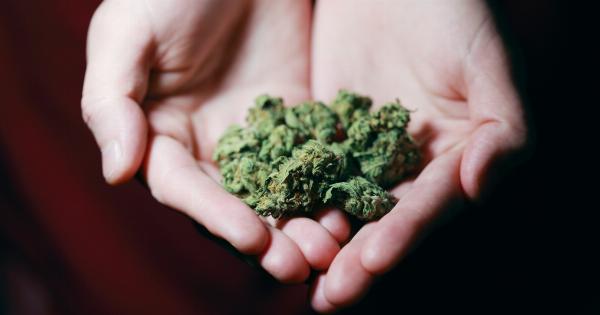Addiction can come in many forms – from substance addictions such as alcohol, drugs and tobacco, to behavioral addictions such as gambling, porn, and internet.
Regardless of its type, addiction can have a profound impact on your health, both physical and mental.
1. Physical Health Consequences of Addiction
Substance addictions can have severe and long-lasting impacts on your physical health. Here are just a few examples:.
1.1. Heart Disease
Smoking is a leading cause of heart disease, which can lead to heart attacks and strokes. Both opioid and cocaine use can cause heart attacks, while stimulant abuse can cause irregular heartbeats and hypertension.
1.2. Liver Disease
Excessive alcohol consumption can cause liver damage, such as fatty liver, hepatitis, cirrhosis, and liver cancer.
1.3. Respiratory Problems
Smoking can cause lung cancer, chronic bronchitis, emphysema, and other respiratory problems. Inhaling drugs like cocaine and opioids can damage the lungs, too.
1.4. Gastrointestinal Disorders
Alcohol and drug abuse can cause gastrointestinal disorders such as gastritis, ulcers, pancreatitis, and gastrointestinal bleeding.
1.5. Malnutrition
Many people who suffer from addiction neglect their nutrition, often choosing drugs or alcohol over healthy food. This can lead to malnutrition, which can weaken the immune system, cause skin disorders, and impair healing.
2. Mental Health Consequences of Addiction
Addiction doesn’t just harm your body; it can also have a detrimental effect on your mental health. Here are some examples:.
2.1. Depression and Anxiety
Many people with addiction struggle with depression and anxiety, which can be a cause or a result of their substance abuse. Substance abuse can cause chemical imbalances in the brain, which can worsen depression and other mental health disorders.
2.2. Addiction and Trauma
People who have experienced trauma, such as sexual abuse, childhood abuse, or post-traumatic stress disorder (PTSD), may turn to addiction as a coping mechanism. However, addiction can exacerbate their trauma symptoms and impair their ability to heal.
2.3. Cognitive Impairment
Chronic drug or alcohol abuse can cause cognitive impairment, such as memory loss, cognitive disorganization, and impaired decision-making. These impairments can last long after people have stopped using drugs or alcohol.
2.4. Social Isolation and Relationship Problems
Addiction can cause people to isolate themselves from their friends, family, and other social connections. This can lead to loneliness, depression, and relationship problems.
3. Prevention and Treatment of Addiction
The best way to avoid the health consequences of addiction is to prevent addiction from occurring in the first place. Here are some tips:.
3.1. Know the Risks
Be aware of the risks of addiction and how it can impact your health. Educate yourself and others about the dangers of substance abuse, gambling, and other addictions.
3.2. Develop Healthy Coping Mechanisms
Instead of turning to drugs, alcohol, or other addictive behaviors, find healthy ways to cope with stress, anxiety, and other negative emotions. This can include exercise, meditation, therapy, or socializing with friends and family.
3.3. Seek Help Early
Don’t wait until addiction has taken over your life before seeking help. If you or someone you know is struggling with addiction, seek professional treatment as soon as possible.
Early intervention can significantly increase the chances of recovery.
3.4. Be Supportive of Recovery
If you know someone who is in recovery from addiction, be supportive and understanding. Recovery is a challenging and ongoing process, and your support can make a big difference.
Conclusion
Addiction can have severe and long-lasting impacts on your physical and mental health. Understanding the risks and consequences of addiction can help you make informed choices and take steps to prevent addiction or seek treatment if necessary.
Remember that recovery is possible, and with the right support and resources, you can regain your health and well-being.


























